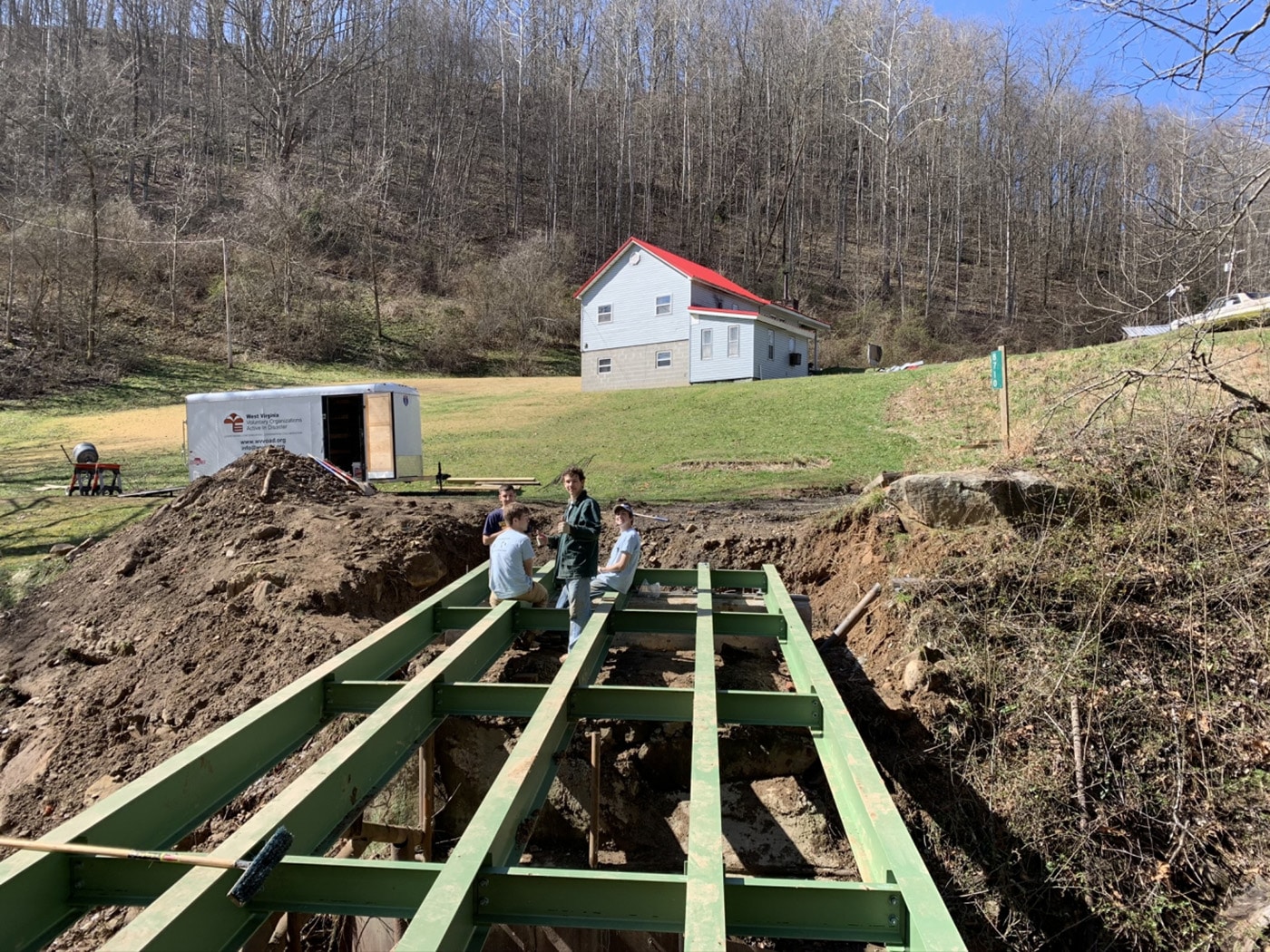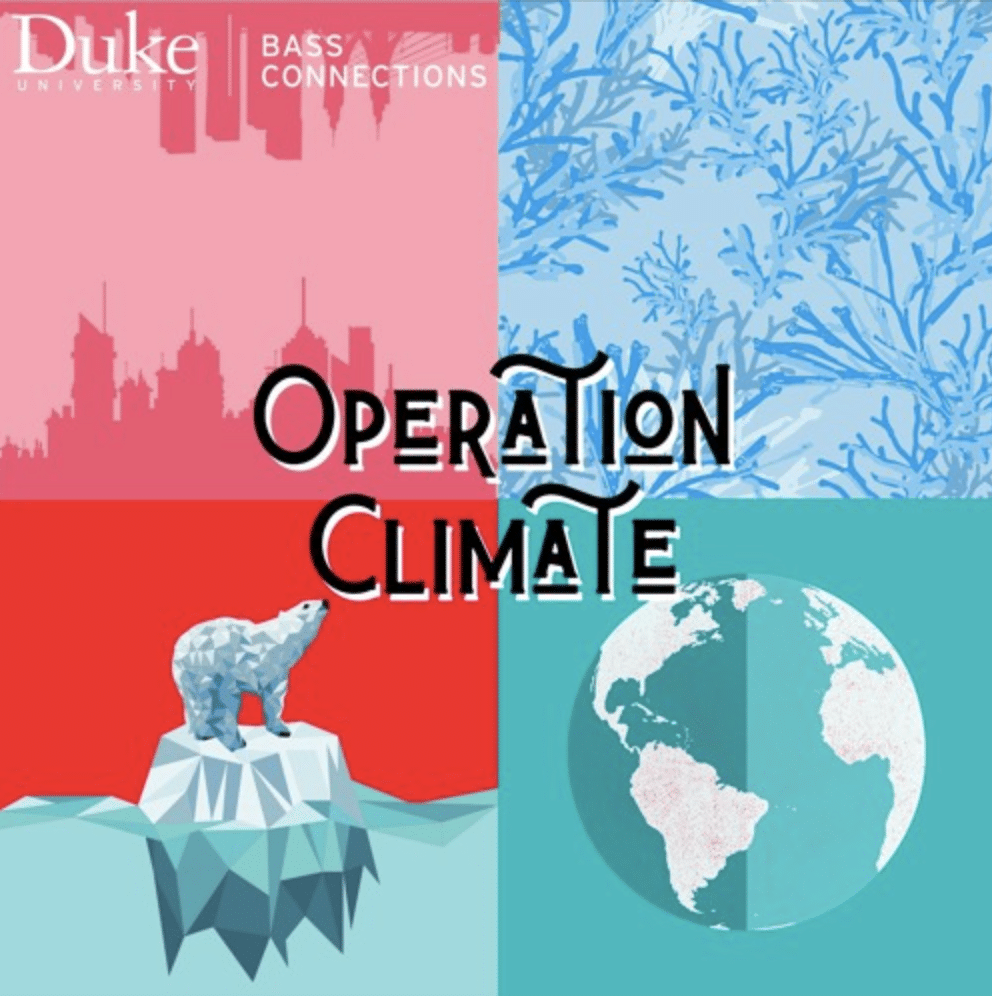Building Bridges and Building Audiences
By Miranda Volborth
Duke CEE attracts a particular type of student: scrappy, resourceful and deeply interested in improving human health and the state of the environment. Many of these students focus on global development projects; others are exploring science communication as a new avenue to create meaningful change

Open the door to any civil or environmental engineering lab at Duke and you’ll find students working to improve sanitation, mitigate air pollution, or build earthquake early detection networks, among many other aspirational projects.
“Students become engineers because we want to see things working in the real world as we imagine them in our minds,” said Professor of the Practice David Schaad, who teaches the popular “Engineering Sustainable Design and the Global Community” course, cross-listed with public policy and environmental science, each spring. A number of students, including those who belong to Duke Engineers for International Development (DEID), enroll in this course and spend the semester designing projects like bridges, clinics and water catchment systems over the course of the semester. In the summer, some of them travel and live abroad, working with engineers in a host community to revise and implement their designs.

DEID began in 2005, completing their first projects in Indonesia after the 2004 Tsunami, and initially working as a chapter of Engineers Without Borders. A helpful collaboration with the Duke Global Health Institute followed, aiding an ambitious project to build a community clinic in Honduras. But when DEID partnered with DukeEngage in 2008, said Schaad, “it was transformative.” DukeEngage provided support for logistical costs, including airfare, allowing DEID to focus on raising money for materials, 100 percent of which stay in-country. And, because DukeEngage emphasizes immersion, students can live and work in their host communities for eight weeks or longer, making large strides toward project completion and allowing for more impactful community-driven projects.
This summer, students worked on a vehicular bridge in West Virginia; next summer, they’ll build a pedestrian bridge in Bolivia.

“Students can have a worthwhile experience as a summer intern, redlining documents in an office, but they can also be out in the field, figuring out how to intercept a spring to pipe water to a community three kilometers away,” said Schaad. “There is something so gratifying about that kind of experience. Many students involved with DEID see the impact of their work and want to make that part of their ethos—even if they go into other fields.”
Schaad rattled off a string of DEID alumni now managing global development projects—or designing huge metropolitan building projects or working in energy development or the foreign service. “They’re all doing the work of a global citizen,” he said.
Duke’s Global Development Engineering certificate can formalize a curricular pathway for interested students. In addition to technical training, the program covers topics in ethics, public policy and economics, and fosters a cooperative approach to solving global challenges like economic empowerment and access to health care.
Joining institutional programs like DEID isn’t the only way that students are catalyzing change. Some are forging new paths, leveraging popular science communication tactics.
A handful of students on an interdisciplinary Bass Connections team exploring geoengineering, for example, decided that the best way to demystify such a big, weird concept was to talk about it more. So in April of 2020, they launched a climate-oriented educational podcast for their peers.
None of the students had any experience producing a podcast, but that didn’t slow them down . . . much. After Kathleen Burns, a PhD candidate in English, gave the budding podcasters some tips on presenting information clearly for a non-technical audience, they produced and released the first three episodes of the “Operation Climate” podcast in quick succession, easing their audience into the topic with an initial episode titled “Why We Should Care About Climate Change.”
Even as the Bass Connections project spooled down, said civil and environmental engineering (CEE) student Matthew Brune, his ambitions for the podcast grew. “I texted Katherine (Li, another CEE student who worked to launch Operation Climate) and said ‘Hey, that was really fun. Let’s keep going,’” said Brune. The two partnered with the Duke Environmental Alliance to expand the range of environmental issues the podcast addressed, tackling COVID-19 and climate, activism, and most recently creating a whole season on carbon neutrality.
This summer, Brune and Li created a high school internship program engaging more than 40 students from the U.S. and Canada, who receive training in podcasting and producing videos and other educational content. The hope is that these young science communicators will influence their own peers with the media they create and share. Brune and Li have filed for 501c3 status, a designation that will support them in their quest to create a small army of climate influencers.

The nonprofit status would also help them with the goal of integrating climate-related content with high school science curricula where they can. “We are aware that teachers have less than zero time to cover new material,” acknowledge Brune, “so we’re looking at existing curricula and creating five- to ten-minute warm-ups that support their objectives.”
“Early on, we had to decide–did we want to reach a large group and move them just a bit? Or did we want to engage intensely with a smaller group and move them to action?” asked Li. “The key to making real change is action.”
“The key to making real change is action.”
Katherine Li
And knowledge, pointed out Imari Karega Walker, a PhD student in the lab of environmental chemist Lee Ferguson. Walker studies the fate of plastic components as they break down and disperse in the environment, and she knows a lot more than the average person about the potential risks posed by exposure to microplastics and plastic additives.
“We need to have the power to make decisions for ourselves,” said Walker. “And if we don’t even know what we’re putting into our environment and what we’re exposing ourselves to, we can’t make informed decisions.”
Knowing that people generally don’t seek out this kind of information from academic sources, Walker started a YouTube channel in 2020 to share her knowledge about plastic pollution and chemicals in consumer products.
Almost immediately, she was inundated with speaker requests. She has participated in an online press conference to launch the Presidential Plastics Action Plan and spoke to U.S. senators and members of the House of Representatives about the new Break Free from Plastic Act. She also made a video in cooperation with the World Wildlife Federation and Ocean Plastics Leadership Network, in support of their efforts to launch a global treaty on plastics.
Walker estimated that she’s contributed to more than 30 science communication events over the past year, somehow managing her PhD research and her work on a plastic policy case with the Duke Environmental Law Clinic as well.
“It wasn’t the most well-balanced life,” admitted Walker. “But now I have experience enough to know how long that two-minute video or 20-minute presentation will take to prepare, to the standards that I require.”
Though she’s recalibrated, Walker has no plans to slow down. “I’m really hoping that all my work—the research, the SciComm work—will get knowledge out to the people who need it,” she said.

